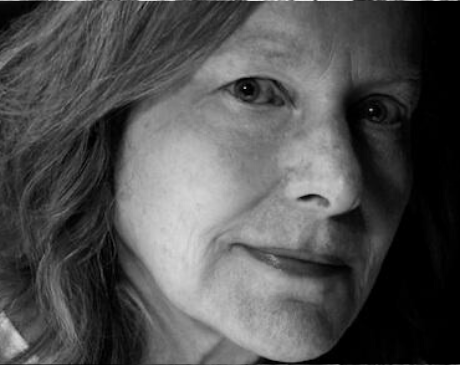Q & A: American Poetry
Q & A American Poetry: Joan Houlihan

In what ways might you consider yourself an American poet?
American by birth, by immersion, by invention, by assimilation of Irish immigrant family ways and values, by melting in the pot. I identify with that strain of American character that is individualistic, seeking new territories, self-inventing and optimistic; the mix of practicality and vision, the tension of seeking to settle and disturbing what's settled. O Pioneer and Don't Fence Me In. Poet by calling.
Do you believe there is anything specifically American about American poetry past and present? Is there American poetry in the sense that there is said to be American painting or American film?
Yes, I think there is, in American poetry, a roughness, a rebellion, a catch-me-if-you-can quality, a willingness to dive in, mix it all up, a reveling in various modes, as opposed to say, British poetry, which retains an air of the parlor about it. Poe, Whitman, Dickinson, Hopkins, Crane, Frost, Stevens and William Carlos Williams all sought and found new territory, original to them, yet identifiably American in vernacular, or sweep of line and form, or unlovely subject matter, or rural voices, and the rough edges made a new jigsaw kind of poetry, one inclusive of contradictory impulses, a mix of high and low diction, of branching and fractured syntax and enjambments, of violent concision and unfettered, ranging conversation and monologue—overall, a wildness and reach matched only by the French surrealists and symbolists.
What role do historical and geographical factors play in American poetry and in your work specifically? What other aspects of your life (for instance: gender, sexual preference, class, ethnicity, religious beliefs) relate to your sense of being a poet in America?
Certainly, New England, with its sharp seasonal changes and the sense of triumph over another winter that makes enjoyment of the spring keener, as well as Yankee short-spokenness and stoicism that is so familiar to an Irish sensibility, play into my work. There is in the New England character, I think, a sense of intense pain or joy kept lidded so that one can do what needs to be done, and I have a deep appreciation for the kinds of courage required by some people to just get through a day. Additionally, an Irish Catholic background yields unlimited dysfunctional material as well as pride in a heritage that produced—and produces—the real deal, the enduring literary voice.
Is there something formally distinctive about American poetry?
Distinctive, yes. Formally? No.
What significance does popular culture possess in your sense of American poetry?
None, really.
When you consider your own "tradition," do you think of American poets, non-American poets? Which historic poets do you consider most responsible for generating distinctly American poetics?
For my own tradition, my own set of influences and cultural touchstones, I think of some American poets, yes—Dickinson, Hopkins, Plath, for example—some non-American, Irish writers such as Beckett, Joyce, and William Trevor, some American playwrights including Arthur Miller, Edward Albee, Eugene O'Neill, and Harold Pinter as well as French symbolist poets Baudelaire, Rimbaud, and Mallarme. All of these influences are, I think, embedded in American poetry.
What are your predictions for American poetry in the next century?
Probably we have not finished with the flat, prosy poem presented as "experimental" or the I-driven memoir poem, or the over-wrought, ironic, and language-y poem, or the poem with no particular reason for existing, and we may never be, and I'm sure the postmodern worm hasn't finished turning and turning in its glittering soil of non-sequiturs, but I am optimistic about poets working in deeper territory, those focused on the emotional and imaginative work that requires devotion to the art of making a poem. Such poets are always among us. The poems that deeply move us, not just entertain us, will again, perhaps, find public favor. Soon, I hope.
Published 2010.


